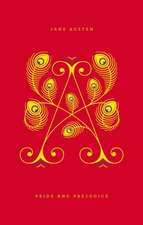Alexander's Bridge: Willa Cather Scholarly Edition
Autor Willa Cather Editat de Frederick M. Link Introducere de Guy J. Reynoldsen Limba Engleză Paperback – 31 oct 2012
Engineer Bartley Alexander appears to have a happy life in Boston with a successful career and a beautiful wife. He has been commissioned to design the Moorlock Bridge in Canada, the most important project of his career. With the onset of middle age, however, he grows increasingly restless and discontented, so much so that while in London he recklessly reignites a love affair with the sweetheart of his youth, the Irish actress Hilda Borgoyne. Although the tryst allows Alexander to recapture an element that has been missing from his pedestrian life, the relationship torments his sense of morality and eventually proves disastrous. Alexander’s Bridge explores the demands of Gilded Age society on the individual, as well as the capacity of the individual to violate his own standards of integrity.
This Willa Cather Scholarly Edition provides an illuminating new framework for Cather’s debut novel. The novel is edited according to standards set by the Committee for Scholarly Editions of the Modern Language Association and presents the full range of biographical, historical, and textual information now available, complete with illustrations and maps.
| Toate formatele și edițiile | Preț | Express |
|---|---|---|
| Paperback (11) | 42.19 lei 6-8 săpt. | |
| CreateSpace Independent Publishing Platform – | 46.41 lei 3-5 săpt. | |
| Penguin Random House Group – 23 aug 2012 | 51.70 lei 24-35 zile | |
| CREATESPACE – | 51.80 lei 3-5 săpt. | |
| BISON BOOKS – iun 1977 | 65.09 lei 3-5 săpt. | |
| BISON BOOKS – 31 oct 2012 | 92.10 lei 3-5 săpt. | +43.05 lei 4-10 zile |
| Vintage Books USA – 30 noi 2010 | 108.59 lei 3-5 săpt. | |
| CreateSpace Independent Publishing Platform – | 42.19 lei 6-8 săpt. | |
| Little Brown Print On Demand – 31 aug 2006 | 44.38 lei 6-8 săpt. | |
| 1st World Library – | 71.16 lei 6-8 săpt. | |
| Hastings College Press – iun 2015 | 79.08 lei 6-8 săpt. | |
| LIGHTNING SOURCE INC – 26 mai 2018 | 113.05 lei 17-23 zile | |
| Hardback (3) | 167.14 lei 6-8 săpt. | |
| Bibliotech Press – 5 ian 2020 | 167.14 lei 6-8 săpt. | |
| 1st World Library – | 171.21 lei 6-8 săpt. | |
| Nebraska – iul 2007 | 450.72 lei 6-8 săpt. |
Preț: 92.10 lei
Nou
Puncte Express: 138
Preț estimativ în valută:
17.62€ • 18.40$ • 14.55£
17.62€ • 18.40$ • 14.55£
Carte disponibilă
Livrare economică 25 martie-08 aprilie
Livrare express 08-14 martie pentru 53.04 lei
Preluare comenzi: 021 569.72.76
Specificații
ISBN-13: 9780803243491
ISBN-10: 0803243499
Pagini: 333
Ilustrații: 17 illustrations, 4 maps
Dimensiuni: 152 x 229 x 25 mm
Greutate: 0.47 kg
Ediția:Scholarly Edition
Editura: BISON BOOKS
Colecția Bison Books
Seria Willa Cather Scholarly Edition
Locul publicării:United States
ISBN-10: 0803243499
Pagini: 333
Ilustrații: 17 illustrations, 4 maps
Dimensiuni: 152 x 229 x 25 mm
Greutate: 0.47 kg
Ediția:Scholarly Edition
Editura: BISON BOOKS
Colecția Bison Books
Seria Willa Cather Scholarly Edition
Locul publicării:United States
Notă biografică
Tom Quirk is a professor of English at the University of Missouri-Columbia and the author of Bergson and American Culture: The Worlds of Willa Cather and Wallace Stevens. Frederick M. Link is a professor emeritus of English at the University of Nebraska–Lincoln and the textual editor of One of Ours, Obscure Destinies, and Shadows on the Rock.
Recenzii
“This scholarly edition does justice to Cather’s notoriously particular production requirements. The material and editorial quality of the book meets very high standards, with the paper, the visual presentation of the words on the page, the rigor of the editing and proofreading, the thoroughness of the notes, and the detailed explanation of editorial decisions all illustrating impeccable scholarship. The historical essay and the illustrations provide useful information. . . . This volume stands as a model of scrupulous, indeed loving, scholarship. It offers a fully elaborated, beautiful text that even Cather, despite her effort to bury the book, might be proud to acknowledge.”—Great Plains Quarterly
Descriere
Descriere de la o altă ediție sau format:
Willa Cather's debut novel is infused with the themes that would make her famous.
Willa Cather's debut novel is infused with the themes that would make her famous.
Extras
ONE
Late one brilliant April afternoon Professor Lucius Wilson stood at the head of Chestnut Street, looking about him with the pleased air of a man of taste who does not very often get to Boston. He had lived there as a student, but for twenty years and more, since he had been Professor of Philosophy in a Western university, he had seldom come East except to take a steamer for some foreign port. Wilson was standing quite still, contemplating with a whimsical smile the slanting street, with its worn paving, its irregular, gravely colored houses, and the row of naked trees on which the thin sunlight was still shining. The gleam of the river at the foot of the hill made him blink a little, not so much because it was too bright as because he found it so pleasant. The few passers-by glanced at him unconcernedly, and even the children who hurried along with their school-bags under their arms seemed to find it perfectly natural that a tall brown gentleman should be standing there, looking up through his glasses at the gray housetops.
The sun sank rapidly; the silvery light had faded from the bare boughs and the watery twilight was setting in when Wilson at last walked down the hill, descending into cooler and cooler depths of grayish shadow. His nostril, long unused to it, was quick to detect the smell of wood smoke in the air, blended with the odor of moist spring earth and the saltiness that came up the river with the tide. He crossed Charles Street between jangling street cars and shelving lumber drays, and after a moment of uncertainty wound into Brimmer Street. The street was quiet, deserted, and hung with a thin bluish haze. He had already fixed his sharp eye upon the house which he reasoned should be his objective point, when he noticed a woman approaching rapidly from the opposite direction. Always an interested observer of women, Wilson would have slackened his pace anywhere to follow this one with his impersonal, appreciative glance. She was a person of distinction he saw at once, and, moreover, very handsome. She was tall, carried her beautiful head proudly, and moved with ease and certainty. One immediately took for granted the costly privileges and fine spaces that must lie in the background from which such a figure could emerge with this rapid and elegant gait. Wilson noted her dress, too,—for, in his way, he had an eye for such things,—particularly her brown furs and her hat. He got a blurred impression of her fine color, the violets she wore, her white gloves, and, curiously enough, of her veil, as she turned up a flight of steps in front of him and disappeared.
Wilson was able to enjoy lovely things that passed him on the wing as completely and deliberately as if they had been dug-up marvels, long anticipated, and definitely fixed at the end of a railway journey. For a few pleasurable seconds he quite forgot where he was going, and only after the door had closed behind her did he realize that the young woman had entered the house to which he had directed his trunk from the South Station that morning. He hesitated a moment before mounting the steps. “Can that,” he murmured in amazement,—“can that possibly have been Mrs. Alexander?”
When the servant admitted him, Mrs. Alexander was still standing in the hallway. She heard him give his name, and came forward holding out her hand.
“Is it you, indeed, Professor Wilson? I was afraid that you might get here before I did. I was detained at a concert, and Bartley telephoned that he would be late. Thomas will show you your room. Had you rather have your tea brought to you there, or will you have it down here with me, while we wait for Bartley?”
Wilson was pleased to find that he had been the cause of her rapid walk, and with her he was even more vastly pleased than before. He followed her through the drawing-room into the library, where the wide back windows looked out upon the garden and the sunset and a fine stretch of silver-colored river. A harp-shaped elm stood stripped against the pale-colored evening sky, with ragged last year’s birds’ nests in its forks, and through the bare branches the evening star quivered in the misty air. The long brown room breathed the peace of a rich and amply guarded quiet. Tea was brought in immediately and placed in front of the wood fire. Mrs. Alexander sat down in a high-backed chair and began to pour it, while Wilson sank into a low seat opposite her and took his cup with a great sense of ease and harmony and comfort.
“You have had a long journey, haven’t you?” Mrs. Alexander asked, after showing gracious concern about his tea. “And I am so sorry Bartley is late. He’s often tired when he’s late. He flatters himself that it is a little on his account that you have come to this Congress of Psychologists.”
“It is,” Wilson assented, selecting his muffin carefully; “and I hope he won’t be tired tonight. But, on my own account, I’m glad to have a few moments alone with you, before Bartley comes. I was somehow afraid that my knowing him so well would not put me in the way of getting to know you.”
“That’s very nice of you.” She nodded at him above her cup and smiled, but there was a little formal tightness in her tone which had not been there when she greeted him in the hall.
Wilson leaned forward. “Have I said something awkward? I live very far out of the world, you know. But I didn’t mean that you would exactly fade dim, even if Bartley were here.”
Mrs. Alexander laughed relentingly. “Oh, I’m not so vain! How terribly discerning you are.”
She looked straight at Wilson, and he felt that this quick, frank glance brought about an understanding between them.
He liked everything about her, he told himself, but he particularly liked her eyes; when she looked at one directly for a moment they were like a glimpse of fine windy sky that may bring all sorts of weather.
“Since you noticed something,” Mrs. Alexander went on, “it must have been a flash of the distrust I have come to feel whenever I meet any of the people who knew Bartley when he was a boy. It is always as if they were talking of some one I had never met. Really, Professor Wilson, it would seem that he grew up among the strangest people. They usually say that he has turned out very well, or remark that he always was a fine fellow. I never know what reply to make.”
Wilson chuckled and leaned back in his chair, shaking his left foot gently. “I expect the fact is that we none of us knew him very well, Mrs. Alexander. Though I will say for myself that I was always confident he’d do something extraordinary.”
Mrs. Alexander’s shoulders gave a slight movement, suggestive of impatience. “Oh, I should think that might have been a safe prediction. Another cup, please?”
“Yes, thank you. But predicting, in the case of boys, is not so easy as you might imagine, Mrs. Alexander. Some get a bad hurt early and lose their courage; and some never get a fair wind. Bartley”—he dropped his chin on the back of his long hand and looked at her admiringly—“Bartley caught the wind early, and it has sung in his sails ever since.”
Mrs. Alexander sat looking into the fire with intent preoccupation, and Wilson studied her half-averted face. He liked the suggestion of stormy possibilities in the proud curve of her lip and nostril. Without that, he reflected, she would be too cold.
“I should like to know what he was really like when he was a boy. I don’t believe he remembers,” she said suddenly. “Won’t you smoke, Mr. Wilson?”
Wilson lit a cigarette. “No, I don’t suppose he does. He was never introspective. He was simply the most tremendous response to stimuli I have ever known. We didn’t know exactly what to do with him.”
A servant came in and noiselessly removed the tea-tray. Mrs. Alexander screened her face from the firelight, which was beginning to throw wavering bright spots on her dress and hair as the dusk deepened.
“Of course,” she said, “I now and again hear stories about things that happened when he was in college.”
“But that isn’t what you want.” Wilson wrinkled his brows and looked at her with the smiling familiarity that had come about so quickly. “What you want is a picture of him, standing back there at the other end of twenty years. You want to look down through my memory.”
She dropped her hands in her lap. “Yes, yes; that’s exactly what I want.”
At this moment they heard the front door shut with a jar, and Wilson laughed as Mrs. Alexander rose quickly. “There he is. Away with perspective! No past, no future for Bartley; just the fiery moment. The only moment that ever was or will be in the world!”
The door from the hall opened, a voice called “Winifred?” hurriedly, and a big man came through the drawing-room with a quick, heavy tread, bringing with him a smell of cigar smoke and chill out-of-doors air. When Alexander reached the library door, he switched on the lights and stood six feet and more in the archway, glowing with strength and —cordiality and rugged, blond good looks. There were other bridge—builders in the world, certainly, but it was always Alexander’s picture that the Sunday Supplement men wanted, because he looked as a tamer of rivers ought to look. Under his tumbled sandy hair his head seemed as hard and powerful as a catapult, and his shoulders looked strong enough in themselves to support a span of any one of his ten great bridges that cut the air above as many rivers.
After dinner Alexander took Wilson up to his study. It was a large room over the library, and looked out upon the black river and the row of white lights along the Cambridge Embankment. The room was not at all what one might expect of an engineers study. Wilson felt at once the harmony of beautiful things that have lived long together without obtrusions of ugliness or change. It was none of Alexander's doing, of course; those warm consonances of color had been blending and mellowing before he was born. But the wonder was that he was not out of place there, —that it all seemed to glow like the inevitable background for his vigor and vehemence. He sat before the fire, his shoulders deep in the cushions of his chair, his powerful head upright, his hair rumpled above his broad forehead. He sat heavily, a cigar in his large, smooth hand, a flush of after dinner color in his face, which wind and sun and exposure to all sorts of weather had left fair and clear-skinned.
“You are off for England on Saturday, Bartley, Mrs. Alexander tells me.”
“Yes, for a few weeks only. There’s a meeting of British engineers, and I’m doing another bridge in Canada, you know.”
“Oh, every one knows about that. And it was in Canada that you met your wife, wasn’t it?”
“Yes, at Allway. She was visiting her great-aunt there. A most remarkable old lady. I was working with MacKeller then, an old Scotch engineer who had picked me up in London and taken me back to Quebec with him. He had the contract for the Allway Bridge, but before he began work on it he found out that he was going to die, and he advised the committee to turn the job over to me. Otherwise I’d never have got anything good so early. MacKeller was an old friend of Mrs. Pemberton, Winifred’s aunt. He had mentioned me to her, so when I went to Allway she asked me to come to see her. She was a wonderful old lady.”
“Like her niece?” Wilson queried.
Bartley laughed. “She had been very handsome, but not in Winifred’s way. When I knew her she was little and fragile, very pink and white, with a splendid head and a face like fine old lace, somehow,—but perhaps I always think of that because she wore a lace scarf on her hair. She had such a flavor of life about her. She had known Gordon and Livingstone and Beaconsfield when she was young,—every one. She was the first woman of that sort I’d ever known. You know how it is in the West,—old people are poked out of the way. Aunt Eleanor fascinated me as few young women have ever done. I used to go up from the works to have tea with her, and sit talking to her for hours. It was very stimulating, for she couldn’t tolerate stupidity.”
“It must have been then that your luck began, Bartley,” said Wilson, flicking his cigar ash with his long finger. “It’s curious, watching boys,” he went on reflectively. “I’m sure I did you justice in the matter of ability. Yet I always used to feel that there was a weak spot where some day strain would tell. Even after you began to climb, I stood down in the crowd and watched you with — well, not with confidence. The more dazzling the front you presented, the higher your façade rose, the more I expected to see a big crack zigzagging from top to bottom,”—he indicated its course in the air with his forefinger,—“then a crash and clouds of dust. It was curious. I had such a clear picture of it. And another curious thing, Bartley,”—Wilson spoke with deliberateness and settled deeper into his chair,—“is that I don’t feel it any longer. I am sure of you.”
Alexander laughed. “Nonsense! It’s not I you feel sure of; it’s Winifred. People often make that mistake.”
“No, I’m serious, Alexander. You’ve changed. You have decided to leave some birds in the bushes. You used to want them all.”
Alexander’s chair creaked. “I still want a good many,” he said rather gloomily. “After all, life doesn’t offer a man much. You work like the devil and think you’re getting on, and suddenly you discover that you’ve only been getting yourself tied up. A million details drink you dry. Your life keeps going for things you don’t want, and all the while you are being built alive into a social structure you don’t care a rap about. I sometimes wonder what sort of chap I’d have been if I hadn’t been this sort; I want to go and live out his potentialities, too. I haven’t forgotten that there are birds in the bushes.”
Bartley stopped and sat frowning into the fire, his shoulders thrust forward as if he were about to spring at something. Wilson watched him, wondering.
Late one brilliant April afternoon Professor Lucius Wilson stood at the head of Chestnut Street, looking about him with the pleased air of a man of taste who does not very often get to Boston. He had lived there as a student, but for twenty years and more, since he had been Professor of Philosophy in a Western university, he had seldom come East except to take a steamer for some foreign port. Wilson was standing quite still, contemplating with a whimsical smile the slanting street, with its worn paving, its irregular, gravely colored houses, and the row of naked trees on which the thin sunlight was still shining. The gleam of the river at the foot of the hill made him blink a little, not so much because it was too bright as because he found it so pleasant. The few passers-by glanced at him unconcernedly, and even the children who hurried along with their school-bags under their arms seemed to find it perfectly natural that a tall brown gentleman should be standing there, looking up through his glasses at the gray housetops.
The sun sank rapidly; the silvery light had faded from the bare boughs and the watery twilight was setting in when Wilson at last walked down the hill, descending into cooler and cooler depths of grayish shadow. His nostril, long unused to it, was quick to detect the smell of wood smoke in the air, blended with the odor of moist spring earth and the saltiness that came up the river with the tide. He crossed Charles Street between jangling street cars and shelving lumber drays, and after a moment of uncertainty wound into Brimmer Street. The street was quiet, deserted, and hung with a thin bluish haze. He had already fixed his sharp eye upon the house which he reasoned should be his objective point, when he noticed a woman approaching rapidly from the opposite direction. Always an interested observer of women, Wilson would have slackened his pace anywhere to follow this one with his impersonal, appreciative glance. She was a person of distinction he saw at once, and, moreover, very handsome. She was tall, carried her beautiful head proudly, and moved with ease and certainty. One immediately took for granted the costly privileges and fine spaces that must lie in the background from which such a figure could emerge with this rapid and elegant gait. Wilson noted her dress, too,—for, in his way, he had an eye for such things,—particularly her brown furs and her hat. He got a blurred impression of her fine color, the violets she wore, her white gloves, and, curiously enough, of her veil, as she turned up a flight of steps in front of him and disappeared.
Wilson was able to enjoy lovely things that passed him on the wing as completely and deliberately as if they had been dug-up marvels, long anticipated, and definitely fixed at the end of a railway journey. For a few pleasurable seconds he quite forgot where he was going, and only after the door had closed behind her did he realize that the young woman had entered the house to which he had directed his trunk from the South Station that morning. He hesitated a moment before mounting the steps. “Can that,” he murmured in amazement,—“can that possibly have been Mrs. Alexander?”
When the servant admitted him, Mrs. Alexander was still standing in the hallway. She heard him give his name, and came forward holding out her hand.
“Is it you, indeed, Professor Wilson? I was afraid that you might get here before I did. I was detained at a concert, and Bartley telephoned that he would be late. Thomas will show you your room. Had you rather have your tea brought to you there, or will you have it down here with me, while we wait for Bartley?”
Wilson was pleased to find that he had been the cause of her rapid walk, and with her he was even more vastly pleased than before. He followed her through the drawing-room into the library, where the wide back windows looked out upon the garden and the sunset and a fine stretch of silver-colored river. A harp-shaped elm stood stripped against the pale-colored evening sky, with ragged last year’s birds’ nests in its forks, and through the bare branches the evening star quivered in the misty air. The long brown room breathed the peace of a rich and amply guarded quiet. Tea was brought in immediately and placed in front of the wood fire. Mrs. Alexander sat down in a high-backed chair and began to pour it, while Wilson sank into a low seat opposite her and took his cup with a great sense of ease and harmony and comfort.
“You have had a long journey, haven’t you?” Mrs. Alexander asked, after showing gracious concern about his tea. “And I am so sorry Bartley is late. He’s often tired when he’s late. He flatters himself that it is a little on his account that you have come to this Congress of Psychologists.”
“It is,” Wilson assented, selecting his muffin carefully; “and I hope he won’t be tired tonight. But, on my own account, I’m glad to have a few moments alone with you, before Bartley comes. I was somehow afraid that my knowing him so well would not put me in the way of getting to know you.”
“That’s very nice of you.” She nodded at him above her cup and smiled, but there was a little formal tightness in her tone which had not been there when she greeted him in the hall.
Wilson leaned forward. “Have I said something awkward? I live very far out of the world, you know. But I didn’t mean that you would exactly fade dim, even if Bartley were here.”
Mrs. Alexander laughed relentingly. “Oh, I’m not so vain! How terribly discerning you are.”
She looked straight at Wilson, and he felt that this quick, frank glance brought about an understanding between them.
He liked everything about her, he told himself, but he particularly liked her eyes; when she looked at one directly for a moment they were like a glimpse of fine windy sky that may bring all sorts of weather.
“Since you noticed something,” Mrs. Alexander went on, “it must have been a flash of the distrust I have come to feel whenever I meet any of the people who knew Bartley when he was a boy. It is always as if they were talking of some one I had never met. Really, Professor Wilson, it would seem that he grew up among the strangest people. They usually say that he has turned out very well, or remark that he always was a fine fellow. I never know what reply to make.”
Wilson chuckled and leaned back in his chair, shaking his left foot gently. “I expect the fact is that we none of us knew him very well, Mrs. Alexander. Though I will say for myself that I was always confident he’d do something extraordinary.”
Mrs. Alexander’s shoulders gave a slight movement, suggestive of impatience. “Oh, I should think that might have been a safe prediction. Another cup, please?”
“Yes, thank you. But predicting, in the case of boys, is not so easy as you might imagine, Mrs. Alexander. Some get a bad hurt early and lose their courage; and some never get a fair wind. Bartley”—he dropped his chin on the back of his long hand and looked at her admiringly—“Bartley caught the wind early, and it has sung in his sails ever since.”
Mrs. Alexander sat looking into the fire with intent preoccupation, and Wilson studied her half-averted face. He liked the suggestion of stormy possibilities in the proud curve of her lip and nostril. Without that, he reflected, she would be too cold.
“I should like to know what he was really like when he was a boy. I don’t believe he remembers,” she said suddenly. “Won’t you smoke, Mr. Wilson?”
Wilson lit a cigarette. “No, I don’t suppose he does. He was never introspective. He was simply the most tremendous response to stimuli I have ever known. We didn’t know exactly what to do with him.”
A servant came in and noiselessly removed the tea-tray. Mrs. Alexander screened her face from the firelight, which was beginning to throw wavering bright spots on her dress and hair as the dusk deepened.
“Of course,” she said, “I now and again hear stories about things that happened when he was in college.”
“But that isn’t what you want.” Wilson wrinkled his brows and looked at her with the smiling familiarity that had come about so quickly. “What you want is a picture of him, standing back there at the other end of twenty years. You want to look down through my memory.”
She dropped her hands in her lap. “Yes, yes; that’s exactly what I want.”
At this moment they heard the front door shut with a jar, and Wilson laughed as Mrs. Alexander rose quickly. “There he is. Away with perspective! No past, no future for Bartley; just the fiery moment. The only moment that ever was or will be in the world!”
The door from the hall opened, a voice called “Winifred?” hurriedly, and a big man came through the drawing-room with a quick, heavy tread, bringing with him a smell of cigar smoke and chill out-of-doors air. When Alexander reached the library door, he switched on the lights and stood six feet and more in the archway, glowing with strength and —cordiality and rugged, blond good looks. There were other bridge—builders in the world, certainly, but it was always Alexander’s picture that the Sunday Supplement men wanted, because he looked as a tamer of rivers ought to look. Under his tumbled sandy hair his head seemed as hard and powerful as a catapult, and his shoulders looked strong enough in themselves to support a span of any one of his ten great bridges that cut the air above as many rivers.
After dinner Alexander took Wilson up to his study. It was a large room over the library, and looked out upon the black river and the row of white lights along the Cambridge Embankment. The room was not at all what one might expect of an engineers study. Wilson felt at once the harmony of beautiful things that have lived long together without obtrusions of ugliness or change. It was none of Alexander's doing, of course; those warm consonances of color had been blending and mellowing before he was born. But the wonder was that he was not out of place there, —that it all seemed to glow like the inevitable background for his vigor and vehemence. He sat before the fire, his shoulders deep in the cushions of his chair, his powerful head upright, his hair rumpled above his broad forehead. He sat heavily, a cigar in his large, smooth hand, a flush of after dinner color in his face, which wind and sun and exposure to all sorts of weather had left fair and clear-skinned.
“You are off for England on Saturday, Bartley, Mrs. Alexander tells me.”
“Yes, for a few weeks only. There’s a meeting of British engineers, and I’m doing another bridge in Canada, you know.”
“Oh, every one knows about that. And it was in Canada that you met your wife, wasn’t it?”
“Yes, at Allway. She was visiting her great-aunt there. A most remarkable old lady. I was working with MacKeller then, an old Scotch engineer who had picked me up in London and taken me back to Quebec with him. He had the contract for the Allway Bridge, but before he began work on it he found out that he was going to die, and he advised the committee to turn the job over to me. Otherwise I’d never have got anything good so early. MacKeller was an old friend of Mrs. Pemberton, Winifred’s aunt. He had mentioned me to her, so when I went to Allway she asked me to come to see her. She was a wonderful old lady.”
“Like her niece?” Wilson queried.
Bartley laughed. “She had been very handsome, but not in Winifred’s way. When I knew her she was little and fragile, very pink and white, with a splendid head and a face like fine old lace, somehow,—but perhaps I always think of that because she wore a lace scarf on her hair. She had such a flavor of life about her. She had known Gordon and Livingstone and Beaconsfield when she was young,—every one. She was the first woman of that sort I’d ever known. You know how it is in the West,—old people are poked out of the way. Aunt Eleanor fascinated me as few young women have ever done. I used to go up from the works to have tea with her, and sit talking to her for hours. It was very stimulating, for she couldn’t tolerate stupidity.”
“It must have been then that your luck began, Bartley,” said Wilson, flicking his cigar ash with his long finger. “It’s curious, watching boys,” he went on reflectively. “I’m sure I did you justice in the matter of ability. Yet I always used to feel that there was a weak spot where some day strain would tell. Even after you began to climb, I stood down in the crowd and watched you with — well, not with confidence. The more dazzling the front you presented, the higher your façade rose, the more I expected to see a big crack zigzagging from top to bottom,”—he indicated its course in the air with his forefinger,—“then a crash and clouds of dust. It was curious. I had such a clear picture of it. And another curious thing, Bartley,”—Wilson spoke with deliberateness and settled deeper into his chair,—“is that I don’t feel it any longer. I am sure of you.”
Alexander laughed. “Nonsense! It’s not I you feel sure of; it’s Winifred. People often make that mistake.”
“No, I’m serious, Alexander. You’ve changed. You have decided to leave some birds in the bushes. You used to want them all.”
Alexander’s chair creaked. “I still want a good many,” he said rather gloomily. “After all, life doesn’t offer a man much. You work like the devil and think you’re getting on, and suddenly you discover that you’ve only been getting yourself tied up. A million details drink you dry. Your life keeps going for things you don’t want, and all the while you are being built alive into a social structure you don’t care a rap about. I sometimes wonder what sort of chap I’d have been if I hadn’t been this sort; I want to go and live out his potentialities, too. I haven’t forgotten that there are birds in the bushes.”
Bartley stopped and sat frowning into the fire, his shoulders thrust forward as if he were about to spring at something. Wilson watched him, wondering.





























